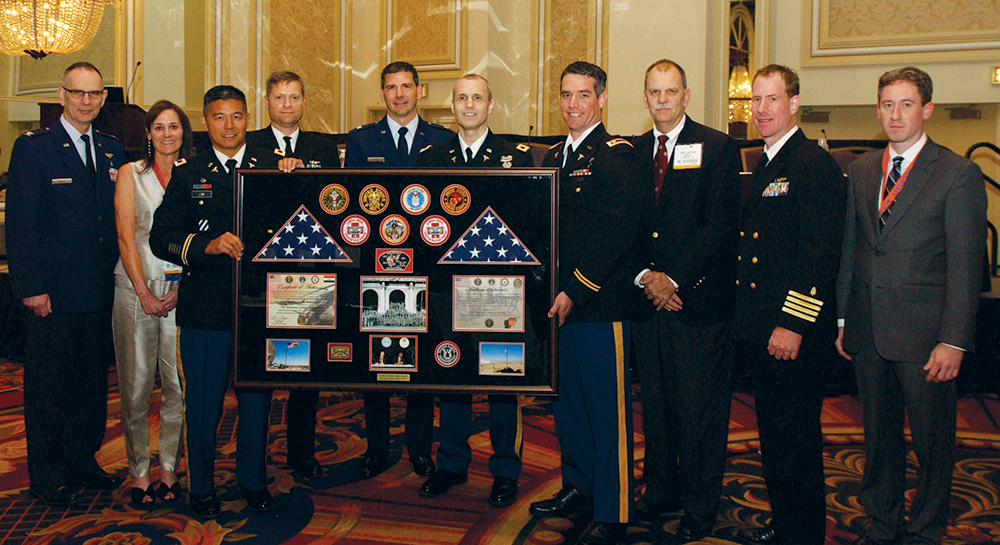In October 2014, the American College of Surgeons (ACS) and the U.S. Department of Defense (DOD) formed the Military Health System Strategic Partnership American College of Surgeons (MHSSPACS) in order to share information in the areas of surgical education, trauma and combat casualty care, systems-based practice, and research capabilities. In just five years, the MHSSPACS has evolved rapidly under the leadership of my co-authors this month, Drs. Knudson, Elster, and Rich.
Quality
An initial goal of the MHSSPACS was to address the perception that the quality of surgical care provided at Military Treatment Facilities (MTFs) was inferior to that of other public and private hospitals in the U.S. With the assistance of the ACS Division of Research and Optimal Patient Care, a military quality consortium was formed to include all of the major MTFs in the U.S., as well as a few abroad. This consortium, including both the Surgeon Champions and their surgical clinical case reviewers, meets twice a year to discuss issues that relate to the challenges unique to MTFs.
The recent cumulative data across the entire military medical enterprise demonstrate measurable improvement in surgical quality care indices, with several MTFs now among the top performing hospitals in the nation. In addition, Walter Reed National Military Medical Center, Bethesda, MD, was among the first to be formally reviewed by the ACS using the ACS Red Book, Optimal Resources for Surgical Quality and Safety. These military quality initiatives have recently been highlighted in a paper published in Health Affairs.*
Trauma centers and trauma systems
In 2016, the National Academies of Sciences, Engineering, and Medicine released the report A National Trauma Care System: Integrating Military and Civilian Trauma Systems to Achieve Zero Preventable Deaths after Injury.† Members of the MHSSPACS and the ACS Committee on Trauma (COT) were actively involved in its rollout. In addition, the College advocated for the passage of the National Defense Authorization Act for fiscal year 2017, which requires all major MTFs to either participate in their regional civilian trauma system or to form partnerships with civilian trauma centers to ensure that military trauma teams always are prepared for deployment.
The legislation that would provide grant funding for the development and sustainment of these partnerships (the Mission Zero Act) was passed in June 2019, but the funding has yet to be allocated. In preparation for these grants, the MHSSPACS has developed the “Blue Book,” which outlines the criteria for selecting and evaluating institutions that are interested in participating in this program. The Blue Book has been endorsed by both the Defense Health Board and the Defense Health Agency. Members of the COT and the MHSSPACS are providing both consultation and verification trauma site visits for MTFs seeking to participate in their local trauma systems.
Education
The military has done a spectacular job of developing a trauma system to provide care to wounded warriors in Iraq and Afghanistan. However, preparation for deployment varied from service to service, and without sustainment, many of the lessons learned soon will be forgotten. To meet the challenge of keeping a ready military force, the MHSSPACS has developed a method for assessing knowledge points and skills for deploying general surgeons (the Knowledge, Skills and Abilities [KSA] Project). The knowledge exam is administered electronically and has been demonstrated to be capable of distinguishing an experienced surgeon from one with no deployment history. The skills testing is based on the ACS COT Advanced Surgical Skills for Exposure in Trauma (ASSET) course with some additional surgical specialty stations added (ASSET+). This course has been delivered four times to date and is popular with both the students and the faculty. In areas where knowledge gaps are identified, a multimedia curriculum is being developed and housed on the ACS network for easy access.



